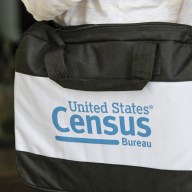Only about a third of Americans support the GOP tax plan which includes cuts, making it less popular than even tax hikes conducted by the George H.W. Bush and Clinton administrations, according to an average of polls calculated by FiveThirtyEight.
Thirty-two percent of Americans approve of the bill, with forty-six percent disapproving, according to an average of November surveys by CNN, Quinnipiac, Morning Consult, ABC/WaPo and YouGov. The fourteen-point spread is greater than Clinton’s 1993 tax boost (which had 43% approval) and the elder Bush’s increase, which had 41% approval despite his infamous “Read my lips” promise not to raise taxes.
On the other end of the spectrum, President Obama’s two extensions of the George W. Bush tax cuts in 2010 and 2013 had 54% and 45% approval respectively. The most popular and least popular tax cuts dating back to 1980 happened in the Reagan era: In 1981, his first cut got 51% approval and his 1986 follow-up got 34% approval — still two points higher than the average on the current GOP proposal.
FiveThirtyEight points out that Clinton’s tax hike — which was 11 points more popular than Trump’s proposed cuts — led to his party losing control of the House in the following midterm elections. “Now, it’s far from clear that Republicans will suffer a 2018 fate similar to the one Democrats met in 1994, even if the GOP passes its tax reform package,” the site says. “Still, Republicans could help their chances if they amend their package to make it focus more on the middle class. A majority of Americans want a middle-class tax cut, and recent history shows that Americans are willing to reward a deal in which Republicans compromise.”
A recent analysis by the nonpartisan Tax Policy Center shows that 63% of tax cuts in the GOP bill will go to the top 20% of Americans. The poorest Americans will begin paying more taxes in 2019 as a result of cuts to social services, and most Americans will pay more in taxes by 2027, after certain tax cuts phase out.
The GOP tax plan in the Senate includes cuts to Medicaid and the repeal of Obamacare’s individual mandate, which the Congressional Budget Office estimates will cause 4 million people to lose their health insurance by 2019 and 13 million by 2027.
According to dynamic scoring released by the CBO on Thursday, the GOP plan will add $1 trillion to the deficit even after considering the economic growth it might cause (and assuming there is no recession in that time period). This contradicts Republican assertions that the cuts would pay for themselves.



















